About NAHNOO
OUR STORY
The idea of NAHNOO burgeoned at the Lebanese University in 2003 where students were limited to activities related to sectarian political parties, who had by then coopted and dominated student life. “University” comes from the Latin word universus, meaning “whole, entire” and a group of students felt the Lebanese University had lost its unifying purpose since each sect, represented by political parties, had its dedicated social events and activities. It became a microcosm of what was also happening in the Lebanese society.
Within this context the idea of NAHNOO, which means “us” in Arabic, was conceived as a student-run club with members from diverse socioeconomic, religious and academic backgrounds. Its goal was to engage with fellow students and organize activities aiming at creating a common space for all at the university. Through this club, the youth wished to try and bring students together around a unifying identity rather than being part of divergent and conflicting groups.
When the founding members graduated, they were faced with the prospect of careers in the corporate world and immigration, or pursuing what they had started as students. Part of them decided to officially establish NAHNOO as a non-profit organization in 2009 (registering under the Ministry of Interior) with the aim of expanding its role from the confines of the Lebanese University to the Lebanese society as a whole.
OUR PRESENT
Today, NAHNOO is a research, capacity building and advocacy platform for participatory public policy-making, working towards an inclusive society in Lebanon.
Within the scope of its work, NAHNOO’s focus mainly revolves around three main areas of intervention:
- Public Spaces
- Good Governance
- Arts & Cultural Heritage
Throughout its years of operation, NAHNOO has carried out multiple programs and projects that advocate for the promotion of public institutions that embody values of equity, transparency, rule of law, and accountability, which, in turn, would foster a more inclusive, informed political environment and encourage civic engagement.
Under the areas of intervention mentioned above, NAHNOO’s advocacy campaigns focus on challenging the existing sectarian system to attain a civil state in which all citizens are equal, improving municipal and governmental transparency as well as administrative decentralization, preserving the Lebanese public spaces such as the coast, in addition to protecting built heritage and craftsmanship.
At the heart of NAHNOO is a dedicated team of youth volunteers we rally from across Lebanon and whose passion for change-making drives the NGO’s advocacy.
Through multidisciplinary and participatory research, training and grassroots activities, we provide a platform for youth and professionals to lead the planning and implementation of advocacy campaigns and gain the skills needed to impact policymaking at the local and national levels.
Additionally, we reckon that what sets our organization apart is its innovative strategy, using a participatory & methodical approach. Indeed, we consider scientific methodology, through research, whether quantitative or qualitative, as a key pillar in all our advocacy campaigns. Furthermore, we strongly believe it is crucial to support citizens in recognizing and acting upon their political power for them to bring about the change they envision. This strategic approach has made NAHNOO a key reference for advocacy in Lebanon and internationally.
VISION
MISSION
NAHNOO is a research, capacity building and advocacy platform for participatory public policy-making, working towards an inclusive society in Lebanon.
VALUES
- NAHNOO upholds international human rights conventions and treaties, and commits to reflect them in its bylaws and work methods.
- NAHNOO commits to be transparent and to adopt a participatory work approach.
- NAHNOO values individual difference and diversity at all levels.
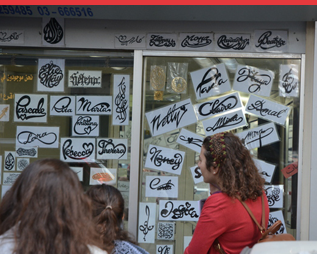
Our story highlights
2003
NAHNOO started as a student-led club at the Lebanese University.
2009
NAHNOO was registered as a non-profit organization
2010
Launch of the “Horsh Beirut for All” campaign for the reopening of Beirut’s largest public space
2014
Launching of the Public space campaign in Tyre, Baalback, and Ramlet Al Bayda
2016
After 5 years of relentless campaigning Horsh Beirut reopened its doors to the public
2017
Launch of the “Municipalities Under the Spotlight” campaign to improve transparency at the municipal level
2021
Launch of the “The Coast for All” campaign for the protection of the Lebanese maritime public domain along with three additional Public Spaces campaigns: “Bayda Ramletna” in Beirut, “Jneinetna Souretna” in Tyre, and “Al Kalaa Be Alb Baalback” in Baalback.
2021
Launching of Chams campaign
2022
Launching of "Our Crafts, our identity" campaign
Today
NAHNOO is actively campaigning for the protection of handicrafts and handicraft workers, the improvement of the Lebanese administrative decentralization system, the promotion of transparency at government and municipal levels, and challenging the existing sectarian system to attain a civil state in which all citizens are equal.
reached
trained
BOARD
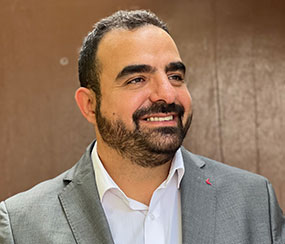
Mohammad Ayoub
The founder of NAHNOO. Postgraduate studies in both history and psychology. He participated in a number of advocacy campaigns to protect the public domain and cultural heritage.
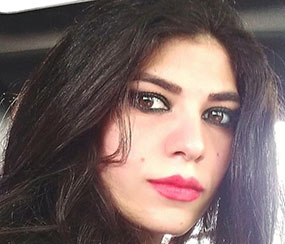
Yara Hmede
Yara Hamadeh is an architect and urban planner. She contributed to many urban studies and led others in different Lebanese areas. She has worked on local development plans for numerous towns and villages in Lebanon and has built a wide experience in municipal affairs. Her research interests include local development, administrative decentralization, and local governance. In addition, she has a vast expertise in teaching Urbanism and Architectural Design courses.
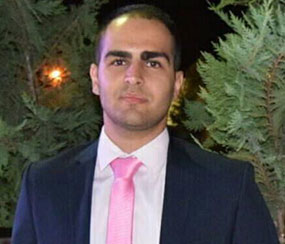
Mostafa Ezzeddie
In 2012, graduated from the Lebanese University Faculty of Law and Political Science with a Bachelor of Laws; joined the Beirut Bar Association as a lawyer in 2014, and been a lawyer on appeal since 2018
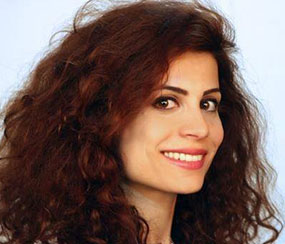
Carine Lteif
Carine has more than 15 years of experience, both in the field and in academia. She holds a PhD in Geography and Spatial Planning from the University of Montpellier, France. She has held technical and management positions at local and international organizations, where she has worked on agriculture, water, landscaping, and entrepreneurship projects, among others.

Sameh Halwani
A visual artist and founder of the Gudran Foundation for Art and Development in Alexandria, Egypt from 2000 to 2018

